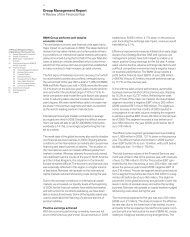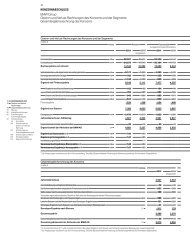Sustainable Value Report 2001/2002 - BMW Group
Sustainable Value Report 2001/2002 - BMW Group
Sustainable Value Report 2001/2002 - BMW Group
Create successful ePaper yourself
Turn your PDF publications into a flip-book with our unique Google optimized e-Paper software.
<strong>BMW</strong> plants in Spartanburg<br />
and Dingolfing<br />
Knowledge management: A competitive<br />
edge<br />
Knowledge is one of the most important<br />
resources of the future. Instead of following<br />
the trend of packing knowledge into electronic<br />
databases, the <strong>BMW</strong> <strong>Group</strong> pursues a longterm<br />
strategy focusing on the promotion of a<br />
knowledge culture.This approach is based on<br />
the principle that a knowledge culture creates<br />
the basic conditions to support <strong>BMW</strong> employees<br />
in their efforts to makes better use of internal<br />
and external information.<br />
Based on information obtained from empirical<br />
studies, <strong>BMW</strong> recognized at an early stage that<br />
knowledge management often requires highly<br />
functional information technology (IT). At the<br />
same time, it must not run parallel to, or contradict<br />
the business processes. A key factor in<br />
long-term success, however, is the work on the<br />
knowledge culture in a world, in which “sharing<br />
knowledge” is often contrary to the “knowledge<br />
is power” concept.<br />
Consequently, a majority of the measures<br />
are aimed at strengthening the awareness in<br />
dealing with knowledge and to provide sustainability,<br />
for example, by implementing this frame<br />
of mind in the corporate principles.This includes<br />
qualifying personnel within the framework of<br />
Basic questions of knowledge management<br />
Is user orientation<br />
assured (interface<br />
between IT and<br />
user)?<br />
Source: <strong>BMW</strong><br />
IT<br />
People/Culture<br />
Processes/Organization<br />
target-group specific training, as well as the<br />
creation of suitable incentives and performance<br />
appraisal systems.<br />
Another focus of attention is on the preparation<br />
and organization of communication platforms<br />
to ensure that experiential knowledge<br />
can flow beyond the limitations of departments<br />
and company plants.This includes, for example,<br />
facilitating an exchange of experience via<br />
Intranet platforms face-to-face encounters,<br />
and communication spaces in the production<br />
plants. Knowledge within the corporation can<br />
only gain effectiveness through the maximum<br />
networking of knowledge carriers and knowledge<br />
transfer.<br />
Sharing success<br />
Profit sharing and financial participation plans<br />
are components of the employee-oriented <strong>BMW</strong><br />
<strong>Group</strong> personnel policies.<br />
In 1973 <strong>BMW</strong> AG successfully introduced<br />
a profit sharing plan essentially based on the<br />
payment of dividends. In <strong>2001</strong>, <strong>BMW</strong> AG<br />
distributed around c235 million in profit sharing<br />
based on the 2000 financial year.This is over<br />
2.5 times more than the amount paid out five<br />
years ago. In 2000, the total bonus payments<br />
including profit sharing, vacation pay, and<br />
To what extent does the<br />
corporate culture promote<br />
the sharing of knowledge<br />
and the use of knowledge<br />
from others?<br />
Is knowledge management<br />
integrated into the existing<br />
business processes, or is it<br />
regarded as “extra”work?<br />
67



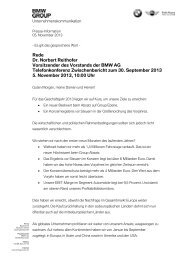
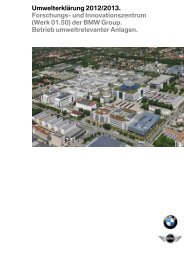
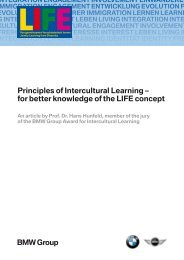

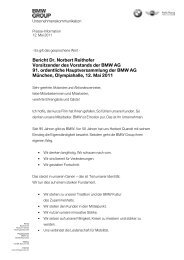
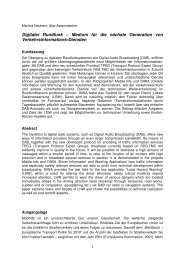
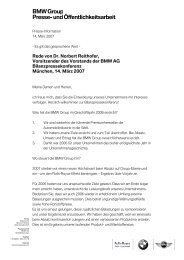

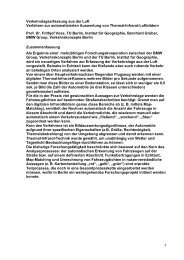
![Vollständiger Bericht [PDF] - BMW Group](https://img.yumpu.com/20706531/1/190x238/vollstandiger-bericht-pdf-bmw-group.jpg?quality=85)



